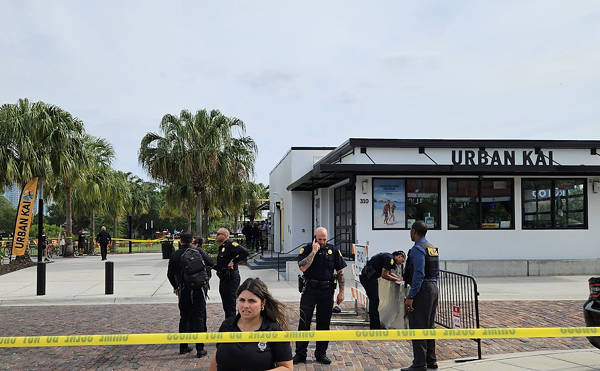Moderate Baptists fought back during those years, but it was never enough. The infamous Resolution No. 5 struck the final blow. Issued in 1988, the "Priesthood of the Believer" resolution established an unprecedented hierarchy in the church, which was to be played out in the homes: pastor over believer, husband over wife. This from a faith that prided itself on religious liberty, and which had suffered horribly in both England and the colonial U.S. because of its worshippers' desire for independence. When No. 5 was approved, the moderates marched out of the San Antonio, Texas, convention center and headed out to the Alamo, where they ripped up their copies of the resolution, singing "We Shall Overcome."
Three years later, the split was permanent: The moderates left the Southern Baptist Church - or were forced out, as many would say - to form the Cooperative Baptist Fellowship.
"Baptists have lost many thoughtful persons because they thought there was only one way to be a Baptist," says Marshall.
For Walker, it's been a long road. When the split in the church occurred in 1991, he had been with the Baptist Joint Committee only a few years. He remembers how the fundamentalists attempted to squelch the BJC by trying to stack the board, but were ultimately blocked. The fundamentalists retaliated by yanking their funding of the BJC, which had provided roughly 50 percent of the committee's total budget. Today, Walker says he has no regrets about the estrangement. "It was a difficult time," he says. "You never want to lose half your budget, but it was liberating in a sense."
Can the takeover of the SBC be seen as a trial run for strategies that have proven successful on a national political level? Some recent exchanges suggest it's more than likely. The same patterns of manipulation, selective rigidity and power brokering seem to be playing out on the national level.
And what's noteworthy is that the gains in the SBC were not temporary. The fundamentalists, once in office, changed not only the constituency, but also the rules - rules, as with Resolution No. 5, that determined who was seen, heard and had overarching power.
Walker fears that many Baptists have forgotten or ignored the church's history as a proponent of church-state separation. Now, his alma mater, Southern Baptist Seminary, is run by fundamentalists who are working to dissolve church/state boundaries - and who, as with Marshall, want nothing to do with him. The sentiment is mutual, although "heartbreaking."
Seminary study, he says, "was a wonderful part of my life. It had to do with who I turned out to be, and I loved what it was, the freedom, the intellectual challenge that it was, and it's no longer that way … In every class one was free to question what the professor was saying or to disagree with a student - how do you understand the Trinity; how do you understand Christ being holy and human; how does one achieve salvation? There was a true sense that you are engaged in serious scholarship rather than being spoonfed."
At the Cooperative Baptist Fellowship in Florida, state coordinator Carolyn Anderson speaks from her Lakeland office. Like Walker, Anderson is a Christian believer who predicts "some cloudy days in America." She jokes that as a moderate Baptist female she is hated in many circles, but she is personally encouraged by Walker's actions and that of BJC. "I have high regard for Brent," she says "He is a man of great commitment to the separation of church and state issue." Also, like Walker, she is frustrated by the newfound church-state closeness. If government underwrites and streamlines religion, it lessens one's choice to seek God, an issue paramount to Baptists.
"Everyone [in the Baptists' fundamentalist wing] thinks they're born a Christian, and that loses a little of the impact, as opposed to being baptized by choice," she says. "That's who Baptists are; they've always wanted separation of church and state."
She too fears that the dynamics that overturned the SBC in the 1980s have finally hit larger turf. "We keep seeing it relived in a larger constituency."
In Florida, moderate Baptists remain, though in small numbers. The same week Justice Sunday aired, about 250 moderates gathered for a spiritual retreat in Leesburg - but the surrounding politics remain. "Speaking personally, it appears that Dobson, Mohler and those involved in hosting [Justice Sunday] are simply trying to rally the troops to continue in their efforts to turn the country to the right, which includes their very narrow goal of limiting the role of women in society as well as in the church," she says.















